Predictive Analytics
Descriptive Analytics
Prescriptive Analytics
Mobile Health Analytics
On-Premise
Cloud-Based
Hybrid
Software
Hardware
Services
Healthcare Providers
Payer Organizations
Pharmaceutical Companies
Research Institutions
North America
Europe
South America
Asia Pacific
Middle East and Africa
North America Outlook (USD Billion, 2019-2035)
Healthcare Analytics Market by Application Type
Predictive Analytics
Descriptive Analytics
Prescriptive Analytics
Mobile Health Analytics
Healthcare Analytics Market by Deployment Mode Type
On-Premise
Cloud-Based
Hybrid
Healthcare Analytics Market by Component Type
Software
Hardware
Services
Healthcare Analytics Market by End Use Type
Healthcare Providers
Payer Organizations
Pharmaceutical Companies
Research Institutions
Healthcare Analytics Market by Regional Type
US
Canada
US Outlook (USD Billion, 2019-2035)
Healthcare Analytics Market by Application Type
Predictive Analytics
Descriptive Analytics
Prescriptive Analytics
Mobile Health Analytics
Healthcare Analytics Market by Deployment Mode Type
On-Premise
Cloud-Based
Hybrid
Healthcare Analytics Market by Component Type
Software
Hardware
Services
Healthcare Analytics Market by End Use Type
Healthcare Providers
Payer Organizations
Pharmaceutical Companies
Research Institutions
CANADA Outlook (USD Billion, 2019-2035)
Healthcare Analytics Market by Application Type
Predictive Analytics
Descriptive Analytics
Prescriptive Analytics
Mobile Health Analytics
Healthcare Analytics Market by Deployment Mode Type
On-Premise
Cloud-Based
Hybrid
Healthcare Analytics Market by Component Type
Software
Hardware
Services
Healthcare Analytics Market by End Use Type
Healthcare Providers
Payer Organizations
Pharmaceutical Companies
Research Institutions
Europe Outlook (USD Billion, 2019-2035)
Healthcare Analytics Market by Application Type
Predictive Analytics
Descriptive Analytics
Prescriptive Analytics
Mobile Health Analytics
Healthcare Analytics Market by Deployment Mode Type
On-Premise
Cloud-Based
Hybrid
Healthcare Analytics Market by Component Type
Software
Hardware
Services
Healthcare Analytics Market by End Use Type
Healthcare Providers
Payer Organizations
Pharmaceutical Companies
Research Institutions
Healthcare Analytics Market by Regional Type
Germany
UK
France
Russia
Italy
Spain
Rest of Europe
GERMANY Outlook (USD Billion, 2019-2035)
Healthcare Analytics Market by Application Type
Predictive Analytics
Descriptive Analytics
Prescriptive Analytics
Mobile Health Analytics
Healthcare Analytics Market by Deployment Mode Type
On-Premise
Cloud-Based
Hybrid
Healthcare Analytics Market by Component Type
Software
Hardware
Services
Healthcare Analytics Market by End Use Type
Healthcare Providers
Payer Organizations
Pharmaceutical Companies
Research Institutions
UK Outlook (USD Billion, 2019-2035)
Healthcare Analytics Market by Application Type
Predictive Analytics
Descriptive Analytics
Prescriptive Analytics
Mobile Health Analytics
Healthcare Analytics Market by Deployment Mode Type
On-Premise
Cloud-Based
Hybrid
Healthcare Analytics Market by Component Type
Software
Hardware
Services
Healthcare Analytics Market by End Use Type
Healthcare Providers
Payer Organizations
Pharmaceutical Companies
Research Institutions
FRANCE Outlook (USD Billion, 2019-2035)
Healthcare Analytics Market by Application Type
Predictive Analytics
Descriptive Analytics
Prescriptive Analytics
Mobile Health Analytics
Healthcare Analytics Market by Deployment Mode Type
On-Premise
Cloud-Based
Hybrid
Healthcare Analytics Market by Component Type
Software
Hardware
Services
Healthcare Analytics Market by End Use Type
Healthcare Providers
Payer Organizations
Pharmaceutical Companies
Research Institutions
RUSSIA Outlook (USD Billion, 2019-2035)
Healthcare Analytics Market by Application Type
Predictive Analytics
Descriptive Analytics
Prescriptive Analytics
Mobile Health Analytics
Healthcare Analytics Market by Deployment Mode Type
On-Premise
Cloud-Based
Hybrid
Healthcare Analytics Market by Component Type
Software
Hardware
Services
Healthcare Analytics Market by End Use Type
Healthcare Providers
Payer Organizations
Pharmaceutical Companies
Research Institutions
ITALY Outlook (USD Billion, 2019-2035)
Healthcare Analytics Market by Application Type
Predictive Analytics
Descriptive Analytics
Prescriptive Analytics
Mobile Health Analytics
Healthcare Analytics Market by Deployment Mode Type
On-Premise
Cloud-Based
Hybrid
Healthcare Analytics Market by Component Type
Software
Hardware
Services
Healthcare Analytics Market by End Use Type
Healthcare Providers
Payer Organizations
Pharmaceutical Companies
Research Institutions
SPAIN Outlook (USD Billion, 2019-2035)
Healthcare Analytics Market by Application Type
Predictive Analytics
Descriptive Analytics
Prescriptive Analytics
Mobile Health Analytics
Healthcare Analytics Market by Deployment Mode Type
On-Premise
Cloud-Based
Hybrid
Healthcare Analytics Market by Component Type
Software
Hardware
Services
Healthcare Analytics Market by End Use Type
Healthcare Providers
Payer Organizations
Pharmaceutical Companies
Research Institutions
REST OF EUROPE Outlook (USD Billion, 2019-2035)
Healthcare Analytics Market by Application Type
Predictive Analytics
Descriptive Analytics
Prescriptive Analytics
Mobile Health Analytics
Healthcare Analytics Market by Deployment Mode Type
On-Premise
Cloud-Based
Hybrid
Healthcare Analytics Market by Component Type
Software
Hardware
Services
Healthcare Analytics Market by End Use Type
Healthcare Providers
Payer Organizations
Pharmaceutical Companies
Research Institutions
APAC Outlook (USD Billion, 2019-2035)
Healthcare Analytics Market by Application Type
Predictive Analytics
Descriptive Analytics
Prescriptive Analytics
Mobile Health Analytics
Healthcare Analytics Market by Deployment Mode Type
On-Premise
Cloud-Based
Hybrid
Healthcare Analytics Market by Component Type
Software
Hardware
Services
Healthcare Analytics Market by End Use Type
Healthcare Providers
Payer Organizations
Pharmaceutical Companies
Research Institutions
Healthcare Analytics Market by Regional Type
China
India
Japan
South Korea
Malaysia
Thailand
Indonesia
Rest of APAC
CHINA Outlook (USD Billion, 2019-2035)
Healthcare Analytics Market by Application Type
Predictive Analytics
Descriptive Analytics
Prescriptive Analytics
Mobile Health Analytics
Healthcare Analytics Market by Deployment Mode Type
On-Premise
Cloud-Based
Hybrid
Healthcare Analytics Market by Component Type
Software
Hardware
Services
Healthcare Analytics Market by End Use Type
Healthcare Providers
Payer Organizations
Pharmaceutical Companies
Research Institutions
INDIA Outlook (USD Billion, 2019-2035)
Healthcare Analytics Market by Application Type
Predictive Analytics
Descriptive Analytics
Prescriptive Analytics
Mobile Health Analytics
Healthcare Analytics Market by Deployment Mode Type
On-Premise
Cloud-Based
Hybrid
Healthcare Analytics Market by Component Type
Software
Hardware
Services
Healthcare Analytics Market by End Use Type
Healthcare Providers
Payer Organizations
Pharmaceutical Companies
Research Institutions
JAPAN Outlook (USD Billion, 2019-2035)
Healthcare Analytics Market by Application Type
Predictive Analytics
Descriptive Analytics
Prescriptive Analytics
Mobile Health Analytics
Healthcare Analytics Market by Deployment Mode Type
On-Premise
Cloud-Based
Hybrid
Healthcare Analytics Market by Component Type
Software
Hardware
Services
Healthcare Analytics Market by End Use Type
Healthcare Providers
Payer Organizations
Pharmaceutical Companies
Research Institutions
SOUTH KOREA Outlook (USD Billion, 2019-2035)
Healthcare Analytics Market by Application Type
Predictive Analytics
Descriptive Analytics
Prescriptive Analytics
Mobile Health Analytics
Healthcare Analytics Market by Deployment Mode Type
On-Premise
Cloud-Based
Hybrid
Healthcare Analytics Market by Component Type
Software
Hardware
Services
Healthcare Analytics Market by End Use Type
Healthcare Providers
Payer Organizations
Pharmaceutical Companies
Research Institutions
MALAYSIA Outlook (USD Billion, 2019-2035)
Healthcare Analytics Market by Application Type
Predictive Analytics
Descriptive Analytics
Prescriptive Analytics
Mobile Health Analytics
Healthcare Analytics Market by Deployment Mode Type
On-Premise
Cloud-Based
Hybrid
Healthcare Analytics Market by Component Type
Software
Hardware
Services
Healthcare Analytics Market by End Use Type
Healthcare Providers
Payer Organizations
Pharmaceutical Companies
Research Institutions
THAILAND Outlook (USD Billion, 2019-2035)
Healthcare Analytics Market by Application Type
Predictive Analytics
Descriptive Analytics
Prescriptive Analytics
Mobile Health Analytics
Healthcare Analytics Market by Deployment Mode Type
On-Premise
Cloud-Based
Hybrid
Healthcare Analytics Market by Component Type
Software
Hardware
Services
Healthcare Analytics Market by End Use Type
Healthcare Providers
Payer Organizations
Pharmaceutical Companies
Research Institutions
INDONESIA Outlook (USD Billion, 2019-2035)
Healthcare Analytics Market by Application Type
Predictive Analytics
Descriptive Analytics
Prescriptive Analytics
Mobile Health Analytics
Healthcare Analytics Market by Deployment Mode Type
On-Premise
Cloud-Based
Hybrid
Healthcare Analytics Market by Component Type
Software
Hardware
Services
Healthcare Analytics Market by End Use Type
Healthcare Providers
Payer Organizations
Pharmaceutical Companies
Research Institutions
REST OF APAC Outlook (USD Billion, 2019-2035)
Healthcare Analytics Market by Application Type
Predictive Analytics
Descriptive Analytics
Prescriptive Analytics
Mobile Health Analytics
Healthcare Analytics Market by Deployment Mode Type
On-Premise
Cloud-Based
Hybrid
Healthcare Analytics Market by Component Type
Software
Hardware
Services
Healthcare Analytics Market by End Use Type
Healthcare Providers
Payer Organizations
Pharmaceutical Companies
Research Institutions
South America Outlook (USD Billion, 2019-2035)
Healthcare Analytics Market by Application Type
Predictive Analytics
Descriptive Analytics
Prescriptive Analytics
Mobile Health Analytics
Healthcare Analytics Market by Deployment Mode Type
On-Premise
Cloud-Based
Hybrid
Healthcare Analytics Market by Component Type
Software
Hardware
Services
Healthcare Analytics Market by End Use Type
Healthcare Providers
Payer Organizations
Pharmaceutical Companies
Research Institutions
Healthcare Analytics Market by Regional Type
Brazil
Mexico
Argentina
Rest of South America
BRAZIL Outlook (USD Billion, 2019-2035)
Healthcare Analytics Market by Application Type
Predictive Analytics
Descriptive Analytics
Prescriptive Analytics
Mobile Health Analytics
Healthcare Analytics Market by Deployment Mode Type
On-Premise
Cloud-Based
Hybrid
Healthcare Analytics Market by Component Type
Software
Hardware
Services
Healthcare Analytics Market by End Use Type
Healthcare Providers
Payer Organizations
Pharmaceutical Companies
Research Institutions
MEXICO Outlook (USD Billion, 2019-2035)
Healthcare Analytics Market by Application Type
Predictive Analytics
Descriptive Analytics
Prescriptive Analytics
Mobile Health Analytics
Healthcare Analytics Market by Deployment Mode Type
On-Premise
Cloud-Based
Hybrid
Healthcare Analytics Market by Component Type
Software
Hardware
Services
Healthcare Analytics Market by End Use Type
Healthcare Providers
Payer Organizations
Pharmaceutical Companies
Research Institutions
ARGENTINA Outlook (USD Billion, 2019-2035)
Healthcare Analytics Market by Application Type
Predictive Analytics
Descriptive Analytics
Prescriptive Analytics
Mobile Health Analytics
Healthcare Analytics Market by Deployment Mode Type
On-Premise
Cloud-Based
Hybrid
Healthcare Analytics Market by Component Type
Software
Hardware
Services
Healthcare Analytics Market by End Use Type
Healthcare Providers
Payer Organizations
Pharmaceutical Companies
Research Institutions
REST OF SOUTH AMERICA Outlook (USD Billion, 2019-2035)
Healthcare Analytics Market by Application Type
Predictive Analytics
Descriptive Analytics
Prescriptive Analytics
Mobile Health Analytics
Healthcare Analytics Market by Deployment Mode Type
On-Premise
Cloud-Based
Hybrid
Healthcare Analytics Market by Component Type
Software
Hardware
Services
Healthcare Analytics Market by End Use Type
Healthcare Providers
Payer Organizations
Pharmaceutical Companies
Research Institutions
MEA Outlook (USD Billion, 2019-2035)
Healthcare Analytics Market by Application Type
Predictive Analytics
Descriptive Analytics
Prescriptive Analytics
Mobile Health Analytics
Healthcare Analytics Market by Deployment Mode Type
On-Premise
Cloud-Based
Hybrid
Healthcare Analytics Market by Component Type
Software
Hardware
Services
Healthcare Analytics Market by End Use Type
Healthcare Providers
Payer Organizations
Pharmaceutical Companies
Research Institutions
Healthcare Analytics Market by Regional Type
GCC Countries
South Africa
Rest of MEA
GCC COUNTRIES Outlook (USD Billion, 2019-2035)
Healthcare Analytics Market by Application Type
Predictive Analytics
Descriptive Analytics
Prescriptive Analytics
Mobile Health Analytics
Healthcare Analytics Market by Deployment Mode Type
On-Premise
Cloud-Based
Hybrid
Healthcare Analytics Market by Component Type
Software
Hardware
Services
Healthcare Analytics Market by End Use Type
Healthcare Providers
Payer Organizations
Pharmaceutical Companies
Research Institutions
SOUTH AFRICA Outlook (USD Billion, 2019-2035)
Healthcare Analytics Market by Application Type
Predictive Analytics
Descriptive Analytics
Prescriptive Analytics
Mobile Health Analytics
Healthcare Analytics Market by Deployment Mode Type
On-Premise
Cloud-Based
Hybrid
Healthcare Analytics Market by Component Type
Software
Hardware
Services
Healthcare Analytics Market by End Use Type
Healthcare Providers
Payer Organizations
Pharmaceutical Companies
Research Institutions
REST OF MEA Outlook (USD Billion, 2019-2035)
Healthcare Analytics Market by Application Type
Predictive Analytics
Descriptive Analytics
Prescriptive Analytics
Mobile Health Analytics
Healthcare Analytics Market by Deployment Mode Type
On-Premise
Cloud-Based
Hybrid
Healthcare Analytics Market by Component Type
Software
Hardware
Services
Healthcare Analytics Market by End Use Type
Healthcare Providers
Payer Organizations
Pharmaceutical Companies
Research Institutions


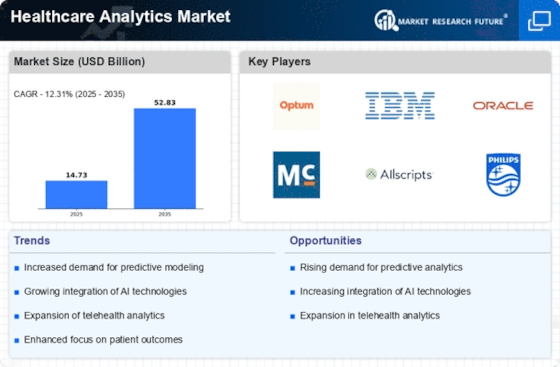
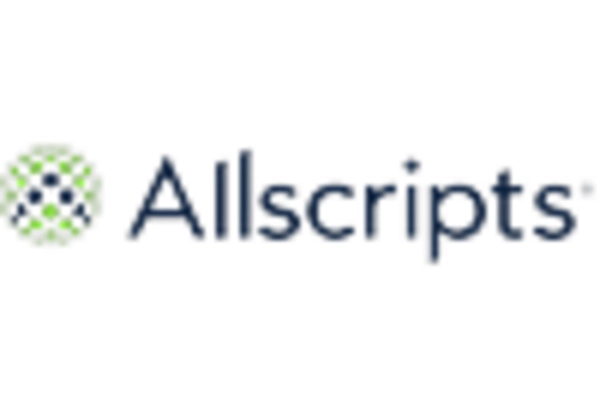
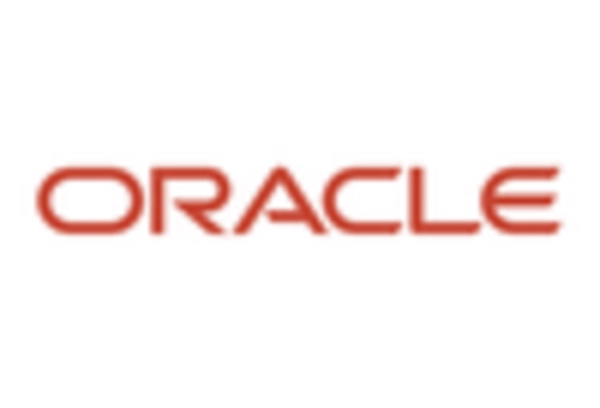

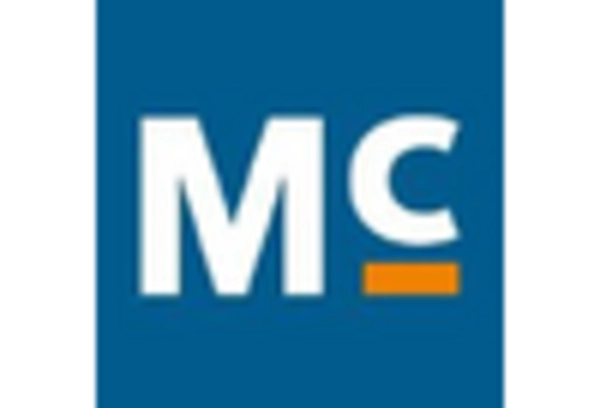
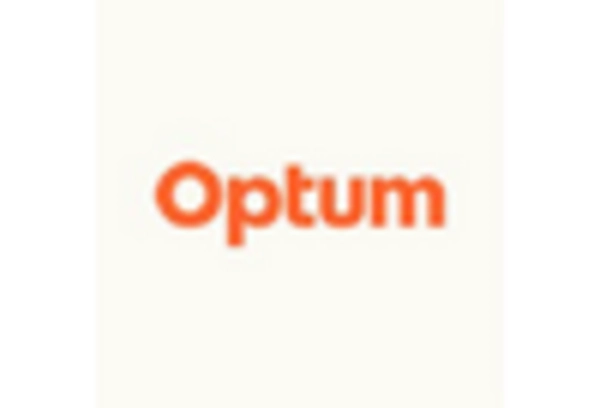











Leave a Comment